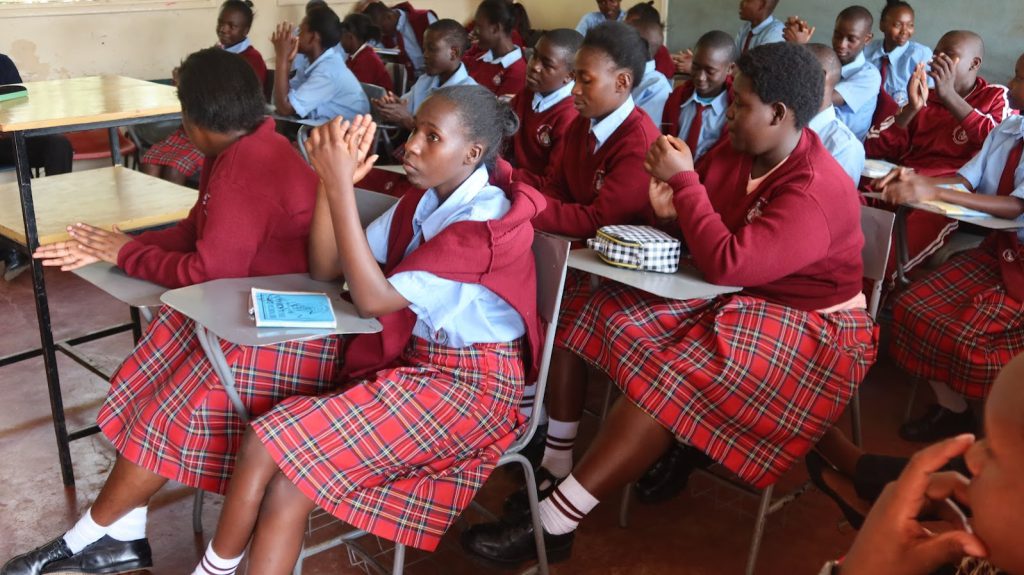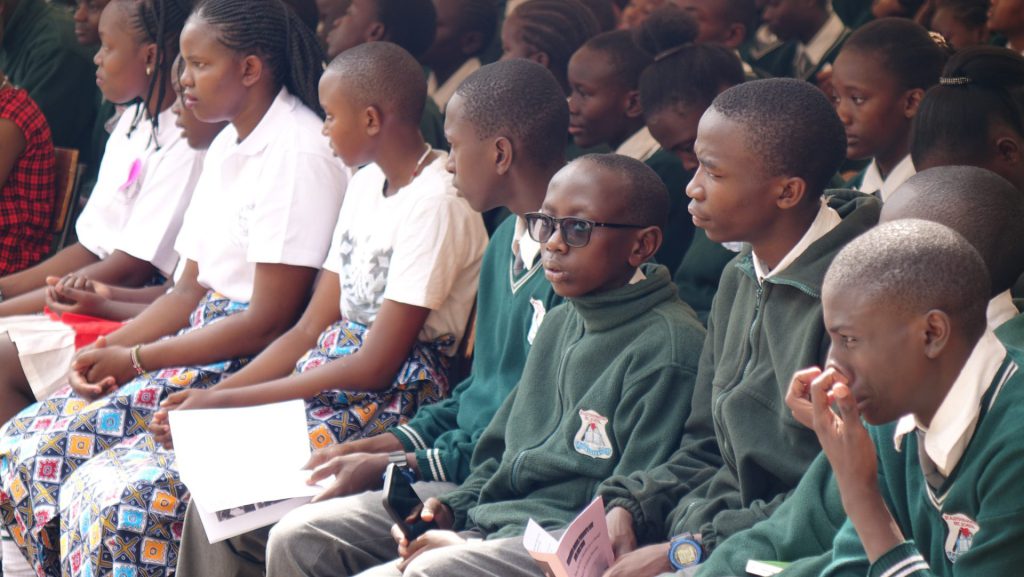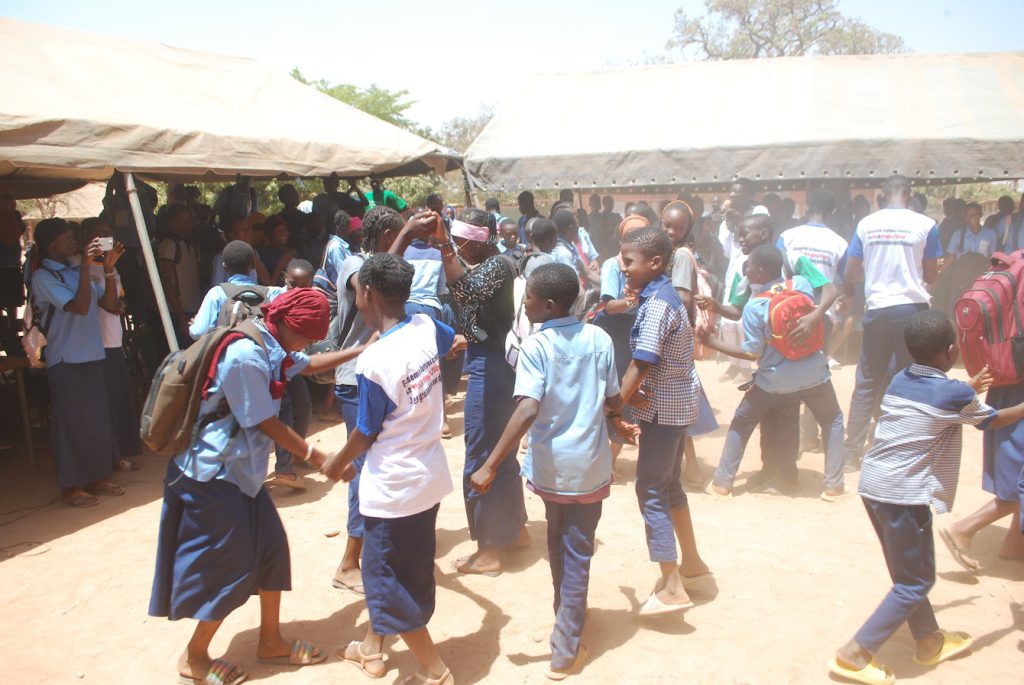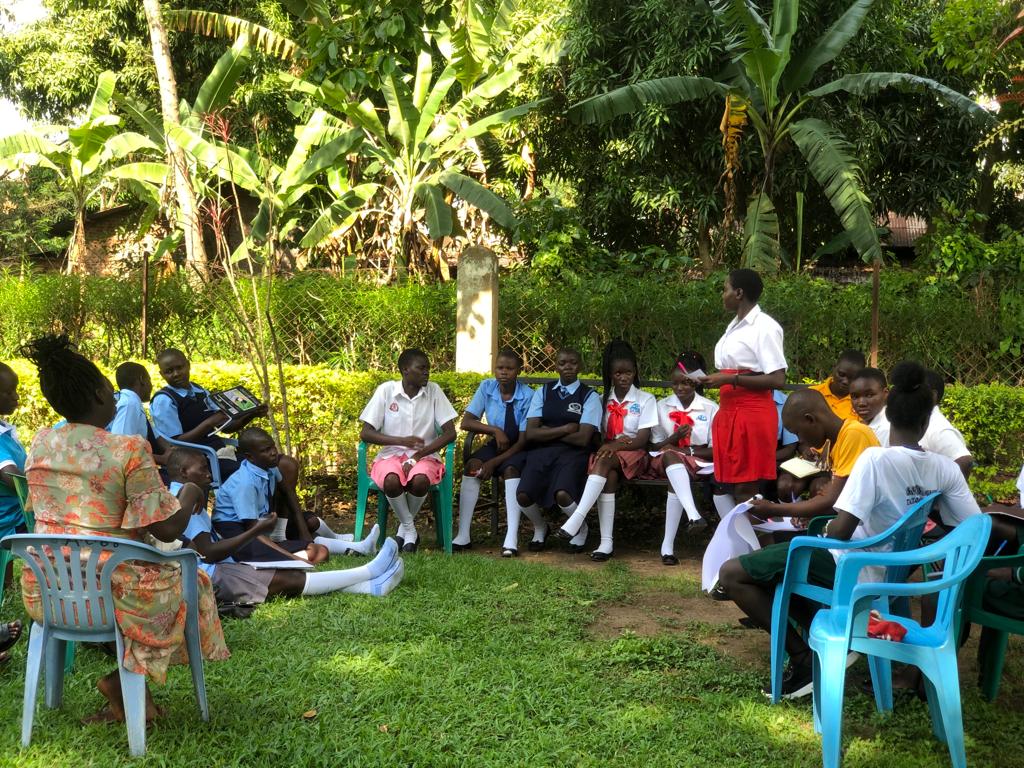In this AJANews Newsletter, June 2024 issue, we celebrate the International Day of the African Child under the theme “Education for all Children in Africa : The time is now!” This theme is in line with the theme of the African Union (2024) “Educate an African fit for the 21st Century: Building resilient education systems for increased access to inclusive, lifelong, quality, and relevant learning in Africa. Every child has the right to education: this is a principle enshrined in the Convention on the Rights of the Child and affirmed most recently by the Sustainable Development Goals, particularly Goal 4 which calls for universal access to quality educational opportunities.
According to a report published by AU Continental Education Strategy for Africa (CESA), the population of African children is estimated to reach 1 billion in 2055, making it the continent with the largest number of children. This denotes how investing in children is critical and determinant for achieving Africa’s development agenda. The impact of lack of education on children is holistic as it affects children’s development, excludes them from future work opportunities, resulting in an intergenerational cycle of poverty, and exposes them to further violence, abuse and exploitation. Poverty, unemployment, and insecurity can be reduced through investing in education.

In the context of HIV, the effectiveness of education as an HIV prevention strategy, which the World Bank calls the “window of hope,” rests upon two key components: (1) greater access to schooling and (2) using schools as a natural place to reach young people infected and affected by HIV & AIDS and other social challenges. Education provides them with practical tools that influence the choices they make in life. Education accords the young the know how to prevent infection of HIV and other pandemics at point zero while responsibly supporting those directly affected. This is particularly true for adolescent girls and young women, who continue to be the most vulnerable and highest risk group.
Amid Africa’s vast and potentially rich landscapes lives a generation of children whose dreams are often overshadowed by poverty and limited educational opportunities. Despite considerable progress over the past two decades in access, completion, and quality of basic education, marginalized African children still face challenges in realizing their educational rights. Consistent interventions from various actors however, contribute greatly to the realization of the dream education for all children in Africa. Jesuits and their collaborators, for example, dedicated to empowering African children through education, are making a profound impact in helping these young individuals to thrive and weave for themselves a brighter future.

In 2023,The Jesuit Justice and Ecology Network – Africa (JENA) attended a side event at the 78th UN SDG Summit where it highlighted the substantial contribution of Catholic education in expediting the realization of sustainable development goals in Africa, particularly SDG 4 (Quality Education) and SDG 5 (Gender Equality), while elevating the narratives, experiences, and insights of girls from underserved and marginalized communities in Africa.
Fr. Charles Chilufya (SJ), director of JENA and the Chairman of the Bakhita Partnership for Education (BPE), urged key stakeholders present, including UN Women, The African Union International Centre for the Education of Girls and Women in Africa (AU/CIEFFA), the Conrad Hilton Foundation, and Catholic Religious Sisters, among others, to unify their perspectives and actions on transforming education in Africa. Such collective effort, he believes, can create a catalytic impact on progress. The Bakhita Partnership for Education (BPE), initiated in 2020 by JENA in partnership with the Hilton Foundation, supports Jesuits, Catholic sisters, and their allies who manage extensive school networks across Africa. It aims to utilize their educational expertise to promote comprehensive education and suggest policy solutions to address the educational challenges in Africa.
African Jesuit AIDS Network (AJAN) believes that education is an effective tool to reduce the social and economic vulnerabilities that often make girls and women susceptible to HIV. AJAN, equally advocates for quality education and skills training for all children, adolescents, and young people as a sustainable intervention to HIV free families, communities and Africa.

Pope Francis views Education as a dynamic reality; it is a movement that brings people to light, it is an act of hope; which helps to break the vicious circle of skepticism, disbelief, and restriction within conceptions and attitudes contrary to the dignity of the human being; education is a factor that humanizes the world, because it helps people to transcend individualism, to appreciate differences, to discover fraternity, to be responsible for the environment. It is “the natural antidote to an individualistic culture that at times degenerates into a veritable cult of the self and the primacy of indifference” (Laudato Si, 2015;Fratelli Tutti, 2020; Evangelii Gaudium, 2013; Amoris Laetitia, 2016; Christus Vivit, 2019); Querida Amazonia, 2020).
During an event in June 2023 Pope Francis met with promoters of the African Compact on Education where he said, “We look to Africa with great confidence, because it has everything it needs to be a continent capable of charting future paths.” Clearly, children hold a special place in the heart of Christ, and it is our responsibility as his followers to make sure these little ones are protected and nurtured. As we seek to glorify the Lord, we should also be working to improve our world, doing our utmost to make this planet a place where children feel safe, have access to educational resources and opportunities.

As we celebrate the courage and resilience of the African Child, the far s/he has come. We invite you to read through updates on activities that have been undertaken by AJAN and the field centers as effort to see that every African child blossoms and achieves the highest of his/ her potentials; Celebration of the African Child in Rwanda. In the issue of June, AJAN is engaging the youth leaders of Catholic Diocese of Marsabit through AHAPPY educational program. Similarly, as part of Jesuit Youth Social Entrepreneurship (JYSEA), AJAN, with partners rolls out a program called Social Entrepreneurship for Job-Creation for a Self-Reliant Church (Entrepreneuriat Social pour la Création d’emploi pour une Eglise Autosuffisante), in the Democratic Republic of Congo.
By, Dennis Owuoche,
AJAN Communications Officer


Comments are closed.